A heart attack seems like it can sneak up on you out of nowhere—one minute you’re jogging, or receive a stressful phone call, and then next you’re clutching your chest, gasping for air, asking someone to call 911. The fact that they are so common reinforces this idea—in our country, nearly 805,000 Americans have a heart attack every year, according to the CDC. That’s one every 40 seconds, making it the leading killer of men and women. Half who get one die. And half of those die within the first hour of getting symptoms.
However, the truth is, many heart attacks can be predicted—and prevented. They don’t have to be sudden; you can stop them from even happening (sometimes; there are many factors involved, including genetics).
How? Knowing the number one cause of a heart attack can help. Read on for the #1 cause of a heart attack, and how you can tell if you’re getting one—and to ensure your health and the health of others, don’t miss these Sure Signs You’ve Already Had COVID.
Before we get into the cause, we have to define what a heart attack is. Many people think it means your heart clamps up and stops working. That’s sort of correct but it’s a bit more complicated. Sections of your heart are supplied by blood flowing in and out of your arteries, which is another name for your blood vessels—imagine them as a muscular tube lined with smooth tissue. The blood flowing through them is oxygen-rich. When the flow stops due to blockage, and a section of your heart cannot get enough oxygen, that section of your heart can begin to die. The blockage needs to be cleared ASAP.
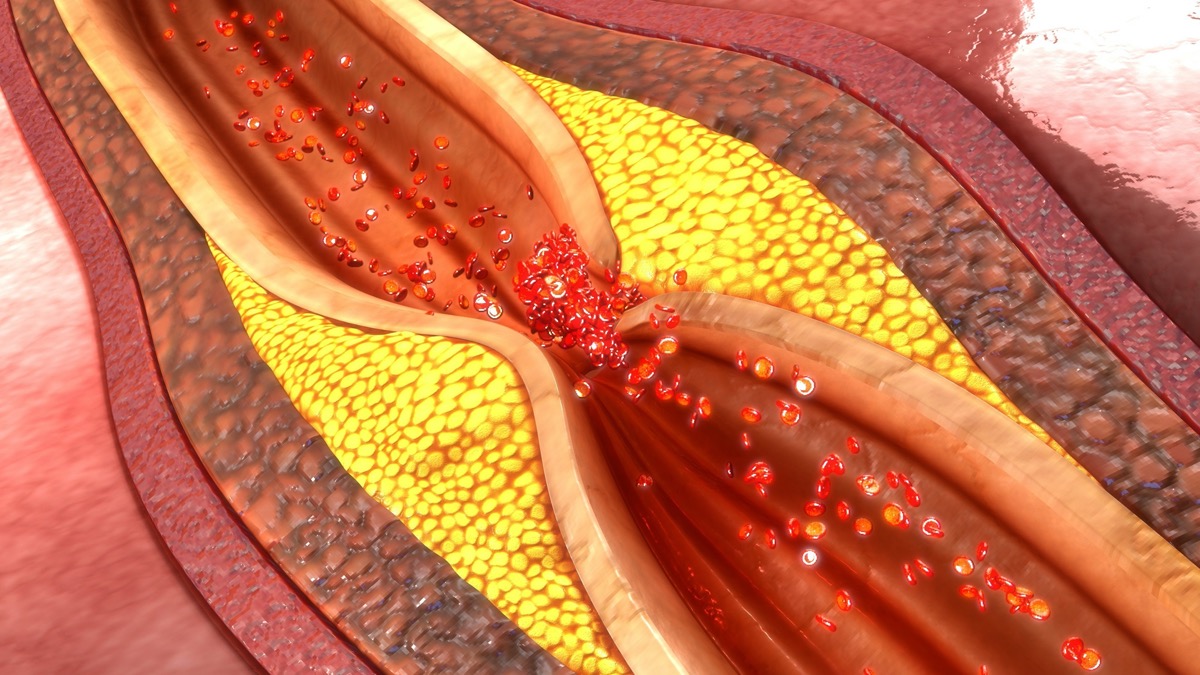
The #1 cause of a heart attack is when fatty plaques in your arteries build up; this is known as atherosclerosis. This “hardening” of your arteries happens when fat—you can probably guess what kind of fat: the dreaded cholesterol—builds up in the lining and forms what’s called plaque. At first, this buildup may be minimal. But if you think of it as a time-lapse film, the building can increase and increase over time, narrowing the artery. Eventually, no blood can get through. No blood, no oxygen. No oxygen, and your heart cannot work.
One note before we continue: Not all cholesterol is bad. In fact, some is essential. Your body builds cells and makes hormones thanks to cholesterol. This kind of “good” cholesterol is called HDL, or high-density lipoprotein. The kind you don’t want is LDL—low-density lipoprotein. A diet high in saturated fat can lead to a buildup of LDL cholesterol.
RELATED: The Worst Side Effects of 5 Popular Supplements
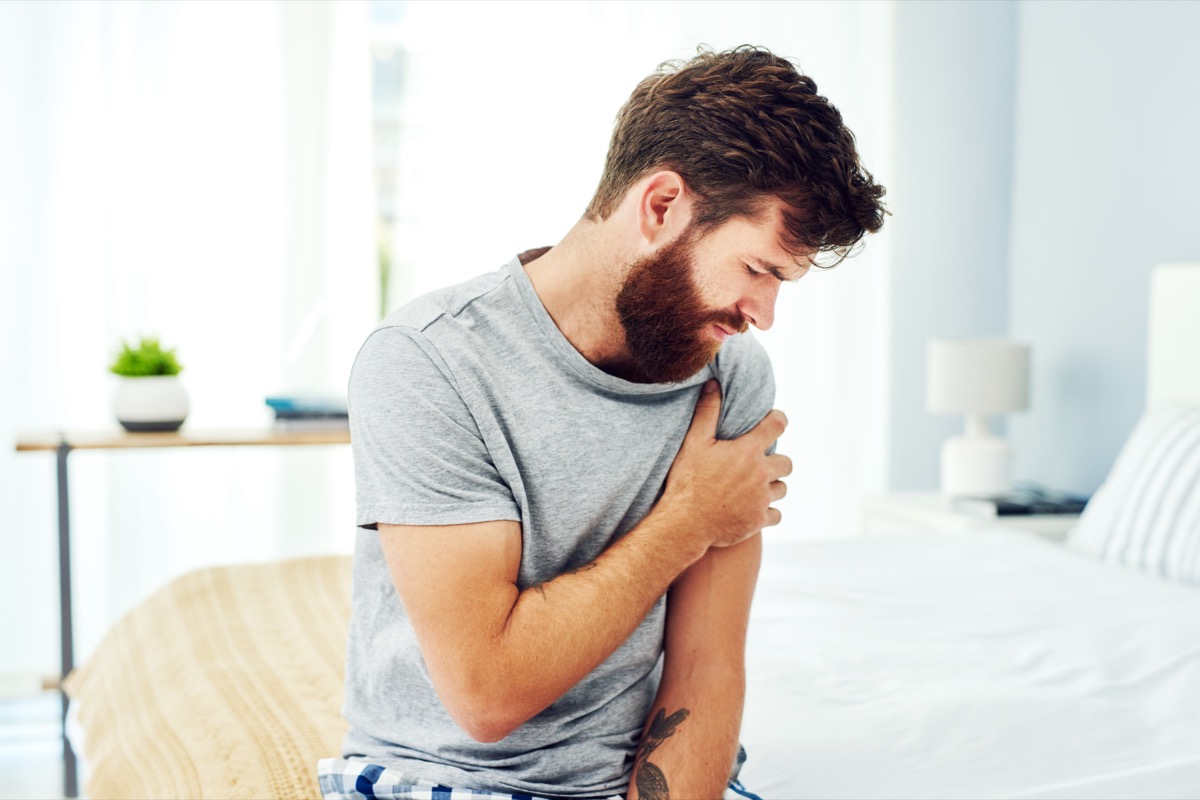
So what exactly happens when you have a heart attack? In some cases, the plaque can rupture, and suddenly your oxygen-rich blood is filled with cholesterol and other nasties—think of an oil spill. Where there was a rupture, a blood clot might form. This causes further blockage. Suddenly, your heart is blocked again. Or your artery could spasm, also shutting down blood flow. When your heart stops receiving the oxygen-rich blood, your brain gets the message—but sometimes can’t isolate the source of the pain, because of “referred pain”—your brain thinks it’s your arm that’s hurting, or your back.
RELATED: Forgetting This One Thing Can Mean You Have Alzheimer’s
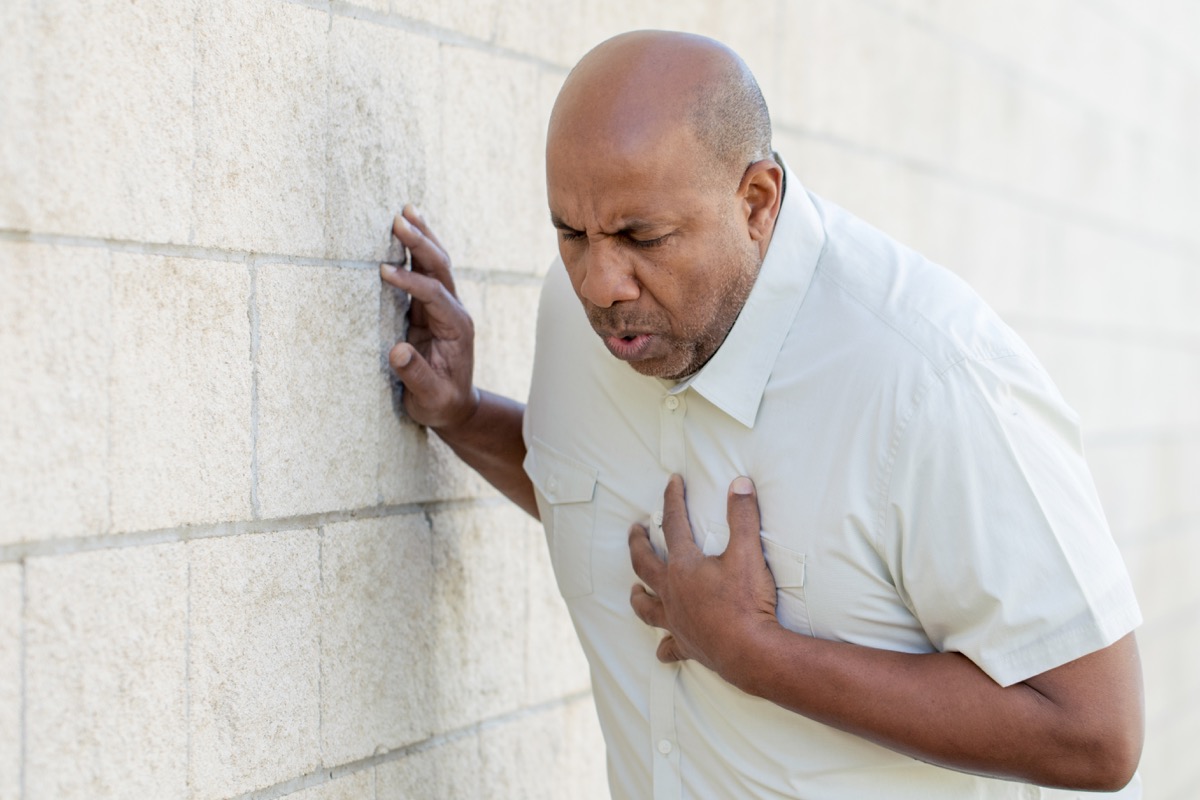
The National Institutes of Health helpfully lists the symptoms: “The signs can include:
- Crushing chest pain or pressure and/or discomfort or pain elsewhere in the upper body, neck, or arms
- A cold sweat
- Fainting or lightheadedness
- Shortness of breath
- Nausea”
We looked to Reddit for a more visceral explanation. “Lots of pressure and pain in your chest,” wrote one survivor. “It starts out mild and grows and grows. Depending on your age, you may realize what’s going on, or just think ‘wow, this is annoying, and better end soon.’ Next thing you know, the pain is unbearable, and you’re having trouble breathing, which leads to lightheadedness. It’s about this time that you definitely realize you need help, and hoping that you can make it to the phone in time.”
Says the NIH: “If you or someone you know might be having a heart attack, call 9-1-1 right away.”
RELATED: Over 60? Reverse Aging With These Health Habits
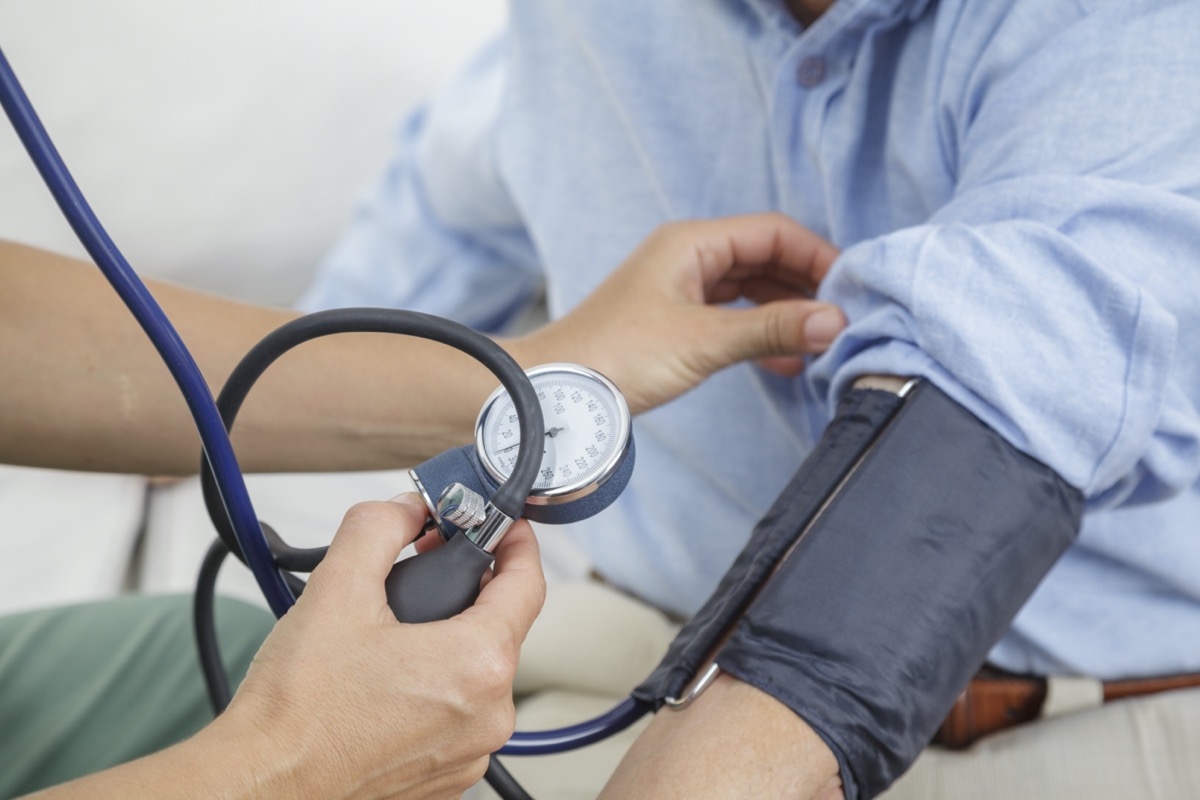
“Unhealthy lifestyle habits, such as a poor diet, lack of exercise, being overweight and smoking, can lead to atherosclerosis,” says the Mayo Clinic. They also list
- “Age
- Tobacco use
- High blood pressure
- High cholesterol
- Diabetes
- Metabolic syndrome
And a family history of heart attacks as major factors.”
RELATED: What Smoking Marijuana Every Day Does to You

Remember up top we said some heart attacks can be prevented. If you’re a smoker, stop. If you’re eating poorly, stop—a healthy diet, one filled with protein, fiber and healthy fats, is one sure-fire way to improve your heart health. You’ll also want to know your cholesterol levels and make sure everything is OK. To this end get your physical every year; cardiologists like Tarak Rambhatla, MD, opt for yearly physicals to suss out potential issues.
“Even if we feel healthy now, the point of this is to avoid a heart attack in the next 10 to 20 years. If we have underlying cardiac risk factors that we don’t realize, those can progress to real disease in 10-15 years,” he says. “If you at least know those numbers, it will give you a good framework for identifying risk factors [for heart attacks and disease].”
RELATED: Healthy New Year Resolutions to Live Longer, According to Experts
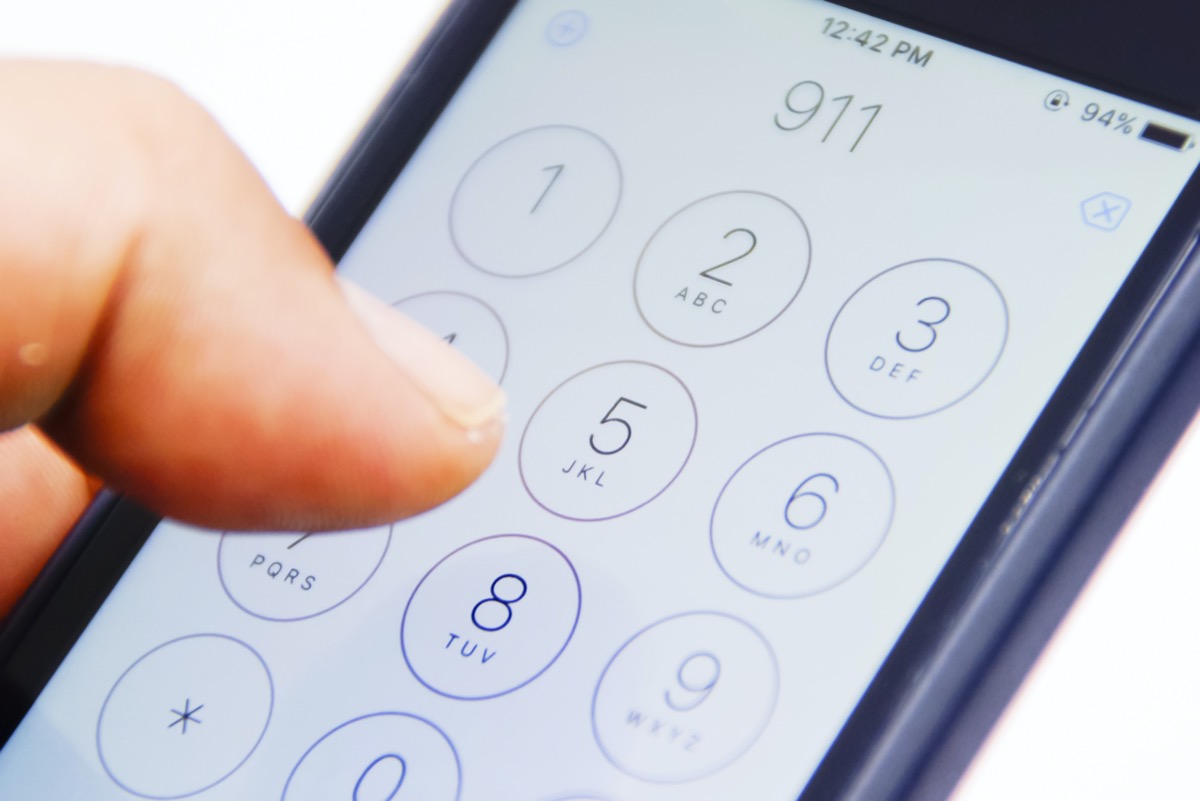
Call 911. As we said, nearly half of those who die from a heart attack do so within the first hour. It’s better to call an ambulance than drive yourself, for obvious reasons; you do not want to worsen the situation by getting behind a wheel, and EMS can help you if your heart starts failing. It’s always better to be safe than sorry. And to get through this pandemic at your healthiest, don’t miss these 35 Places You’re Most Likely to Catch COVID.